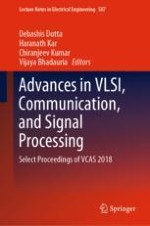2020 | OriginalPaper | Buchkapitel
A Medical Diagnostic Information System with Computing with Words Using Hesitant Fuzzy Sets
verfasst von : Rajkrishna Mondal, Akshay Verma, Pushpendra Kumar Gupta
Erschienen in: Advances in VLSI, Communication, and Signal Processing
Verlag: Springer Singapore
Aktivieren Sie unsere intelligente Suche, um passende Fachinhalte oder Patente zu finden.
Wählen Sie Textabschnitte aus um mit Künstlicher Intelligenz passenden Patente zu finden. powered by
Markieren Sie Textabschnitte, um KI-gestützt weitere passende Inhalte zu finden. powered by
